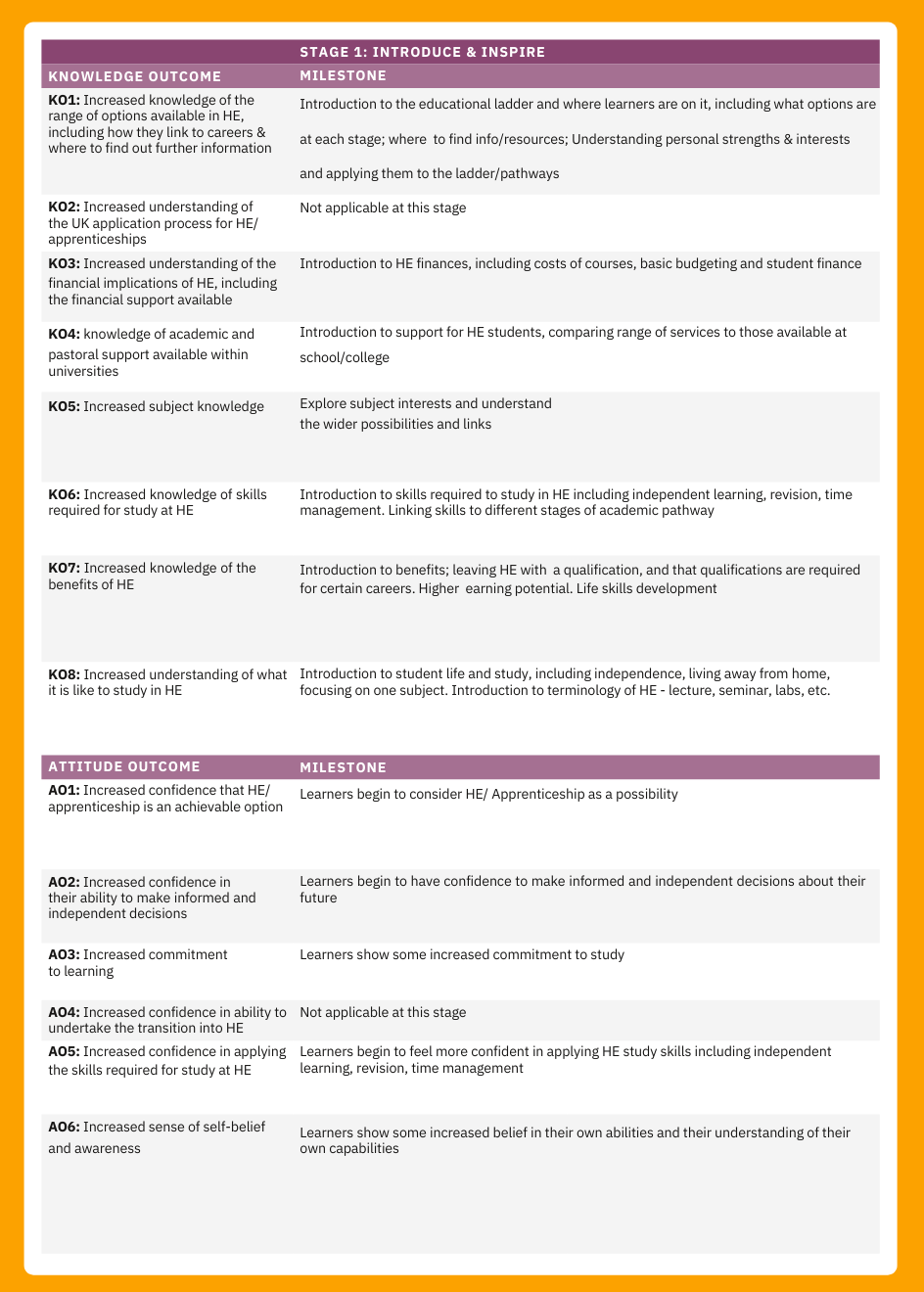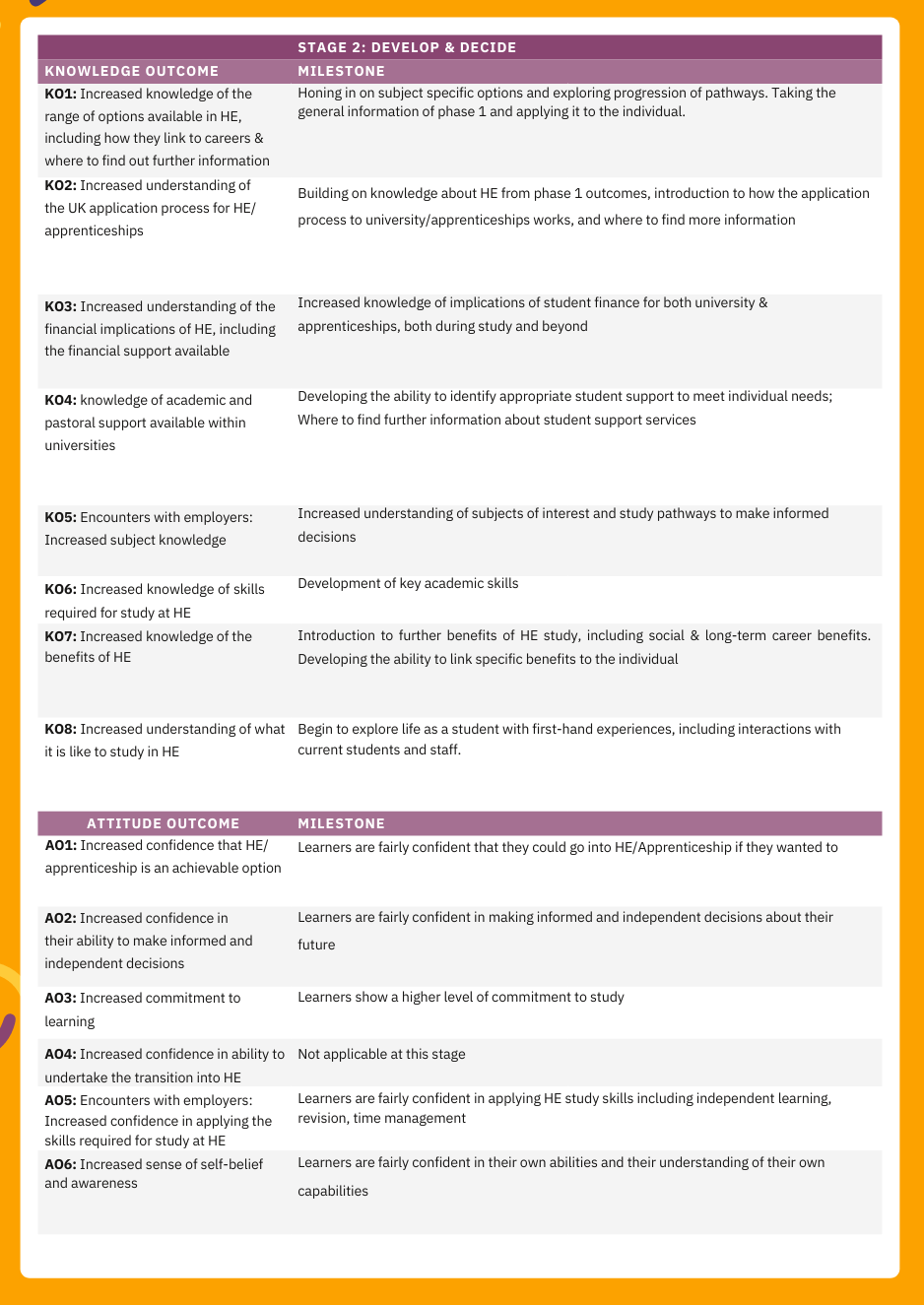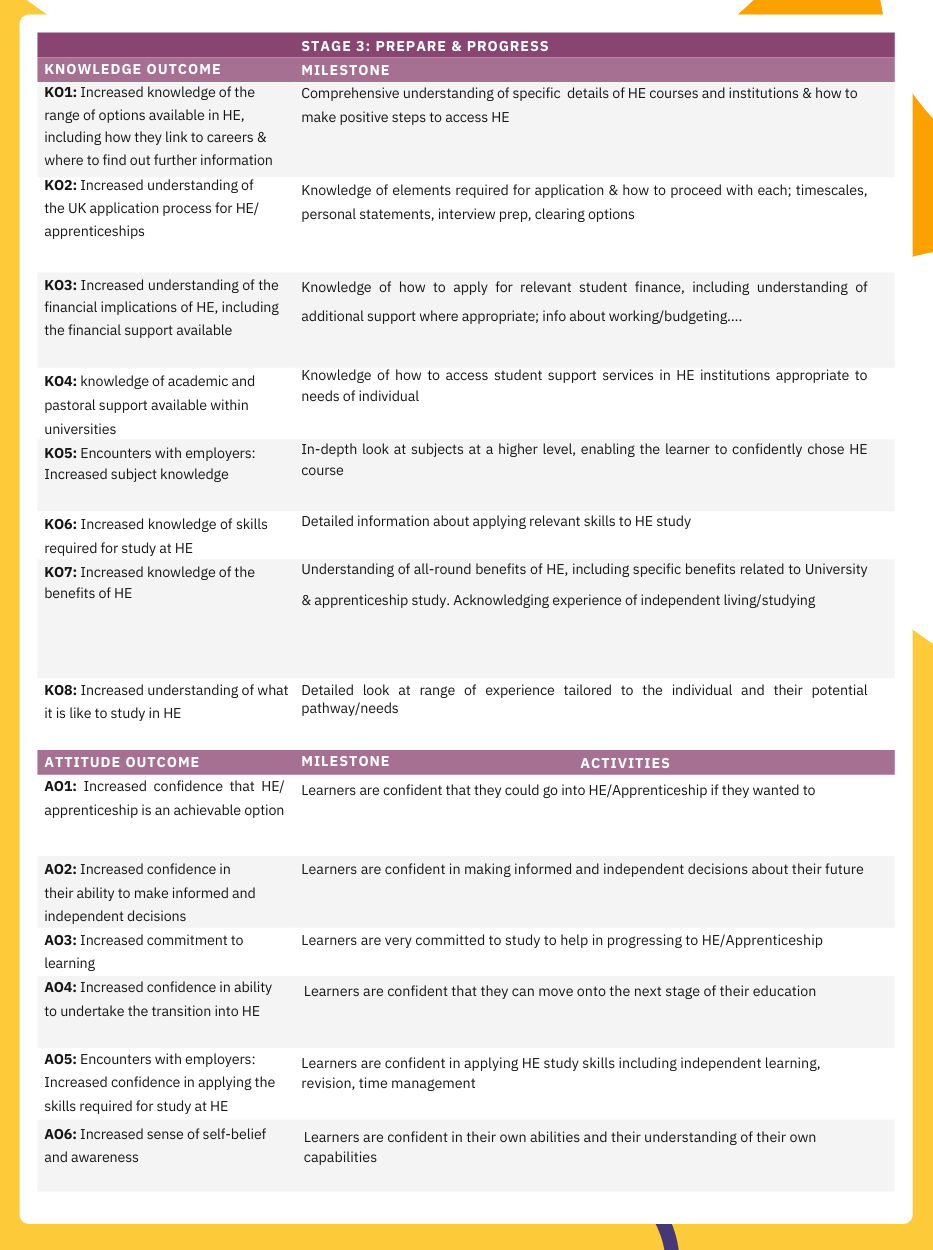Measuring IMpact – Progression Framework
The Higher Education Outreach Network (HEON) progression framework describes the progression of a learner taking part in our sustained & progressive programme of activity, and has been divided into three stages (Introduce & Inspire; Develop & Decide; Prepare & Progress). The stages are related to the learner’s current level of knowledge and aspirations towards higher education, while also appreciating the personal and unique nature of each learner’s potential pathway, and as such does not relate to specific year groups or key stages.
The framework is developed from HEON’s theory of change logic model, which states that to impact the behaviour that our project is hoping to address (increased progression to higher education), first knowledge or understanding of the subject (in this case higher education) must be increased, which leads to improved attitude or aspiration towards higher education. (Knowledge > Attitude > Behaviour). Underpinning this model and framework are eight learner knowledge outcomes, which cover key aspects of higher education. Each outcome is detailed at each of the 3 stages of the progression framework. Similar to the three overall stages of the framework, it is possible for a learner to be at different stages of the framework for each outcome. These knowledge outcomes link to learner attitude outcomes which are also detailed on the framework.
The progression framework will enable the identification of potential gaps in programme delivery by mapping each activity to its intended learner outcomes. If any outcomes are not supported by activity in a given stage of the framework, we will look to build in activity to address this gap.
View the progression framework
Our progression framework is available in two versions. One is a downloadable document as well as image versions being available below.



Increased Attainment
There is evidence that one of the main barriers to accessing higher education is lower levels of attainment. Increasing attainment levels for disadvantaged students is therefore a driver for greater progression to higher education. Alongside the core outcomes in our Progression Framework, there are therefore four additional outcomes associated with our attainment raising activity:
Evaluation questions
- I am confident that I can get the exam results required to progress to higher education.
- I have the academic ability to do well in higher education.
- I could manage with the level of study required in higher education.
Evaluation questions
- I can tell which information is most important when I study.
- I can tell how reliable information is when I read something.
- I can clearly explain my ideas, even when writing about complicated things.
- I can confidently explain my ideas when talking to others.
Evaluation questions
Maths
- I have a good understanding of numbers and calculation (i.e.. multiplying and fractions)
- I have a good understanding of algebra (i.e. formulas and equations)
- I have a good understanding of geometry (i.e. shapes and angles)
- I have a good understanding of statistics (i.e. graphs and tables)
English
- I have a good understanding of analysing text (i.e. author intention and historical context)
- I have a good understanding of writing effectively (i.e. structuring and using metaphors)
- I have a good understanding of vocabulary and grammar (i.e. word usage and sentence structure)
- I have a good understanding of spoken English (i.e. reciting poetry and discussing ideas)
Evaluation questions
- I’m good at dealing with setbacks at school (e.g. negative feedback on my work, poor results)
- I think I’m good at dealing with schoolwork pressures
- I don’t let a bad mark affect my confidence
- Setbacks don’t discourage me